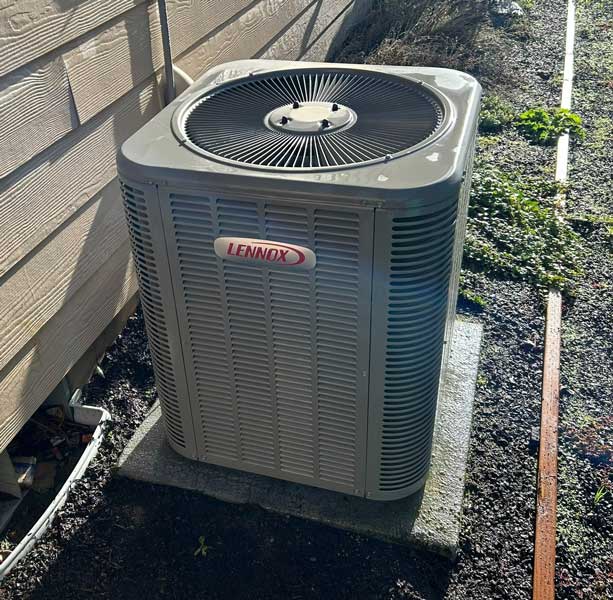Efficient home cooling relies on choosing the right air conditioning system, prioritizing maintenance, adopting energy-saving techniques, and considering environmental impact. Options include ductless or central air systems. Regular maintenance, like cleaning coils and checking refrigerant levels, is crucial. Energy efficiency can be boosted with programmable thermostats. Upgrading to eco-friendly models is beneficial. Selecting reliable contractors is vital for optimal performance. Communicating effectively with contractors ensures tailored solutions. Regular maintenance and DIY tasks like filter cleaning are cost-effective. Strategies like service plans aid efficiency. Learn more about home cooling optimization for a comfortable and cost-effective home environment.
Main Points
- Install programmable thermostats for up to 10% energy savings.
- Optimize efficiency by setting the thermostat at 78°F.
- Upgrade to newer, energy-efficient air conditioning systems.
- Consider state incentives for installing eco-friendly heat pumps.
- Implement strategies to enhance home cooling system performance.
Air Conditioning System Options
Modern air conditioning systems offer improved energy efficiency, and ductless air conditioners are becoming more common and affordable. Ductless systems are ideal for homes without existing ductwork, providing quieter and more efficient cooling than window or portable units. Professional installation is recommended for ductless systems to ensure optimal performance.
Central air conditioning systems utilize ducts to distribute cooled air throughout the house, while split ductless systems feature an outside condenser and indoor blower units connected by a thin conduit.
Understanding these options will help you decide on your home’s cooling requirements.
Functionality and Maintenance Tips
For optimal operation and longevity of your air conditioning system, understanding its functionality and implementing proper maintenance routines are crucial to ensure efficient cooling and comfort in your home. Air conditioners transfer heat from the interior to the outdoors, helping maintain a comfortable indoor temperature through this process.
Efficient cooling is essential for home comfort, making it crucial to comprehend how an AC operates. Proper duct sizing and optimization are vital for efficient cooling, while sealed and insulated ducts prevent energy wastage.
Regular maintenance, including cleaning coils, checking refrigerant levels, and clearing debris from condenser coils, is essential for optimal performance. Negotiating a comprehensive service plan with a reputable technician can ensure your system runs smoothly and efficiently.
Energy Efficiency Strategies
Implementing energy-efficient strategies is paramount in optimizing the performance and cost-effectiveness of your home cooling system. To enhance energy efficiency, consider installing programmable thermostats to reduce cooling costs by approximately 10%. Setting the thermostat at 78°F can further save energy.
New air conditioning systems are also designed to be more energy-efficient and environmentally friendly, offering long-term benefits. Some state governments even provide incentives for installing heat pumps, which can be a cost-effective heating and cooling solution.
Environmental Considerations
Environmental impact is crucial when evaluating the performance and sustainability of home cooling systems. Older air conditioning units often utilize harmful refrigerants like Freon, which the Environmental Protection Agency has phased out due to their ozone-depleting effects.
Upgrading to newer, eco-friendly models improves energy efficiency and reduces the environmental harm caused by potential refrigerant leaks. Regular cooling system maintenance is also essential to prevent any adverse environmental effects.
Selecting the Right Contractor
Selecting a reputable contractor is paramount when seeking professional assistance installing or servicing your home cooling system. When choosing a contractor, seeking referrals and obtaining quotes from at least three companies is essential.
Verify that the contractors are bonded, insured, and properly licensed and certified. Ensure that the contractors use recognized methods for calculating your cooling requirements and ask for detailed printouts of all calculations and assumptions made. Be cautious of contractors who base their estimates on vague rules or incomplete information.
Sharing Information With Contractors
Sharing pertinent information with contractors is crucial for ensuring efficient communication and successful collaboration in the installation or servicing of your home cooling system.
When sharing information, it is essential to provide details about your home’s layout, existing cooling system, any past issues or repairs, and your preferences or concerns regarding the new installation or maintenance.
Clear communication about your cooling needs, budget constraints, and specific requirements will help the contractor tailor their services to effectively meet your expectations.
Additionally, sharing information about any previous energy efficiency upgrades or plans for future renovations can assist the contractor in providing tailored recommendations for optimizing your cooling system’s performance and energy efficiency.
Maintenance and Cost-Saving Tips
To ensure optimal performance and cost-effectiveness of your home cooling system, implementing regular maintenance practices and incorporating cost-saving strategies is paramount. Regular maintenance, such as cleaning coils, drain pans, and vacuuming blower compartments annually, is essential. Additionally, checking refrigerant levels, leaks, and mechanical components can help prevent costly breakdowns and ensure efficient operation.
DIY maintenance, like cleaning grilles and filters monthly and clearing debris from condenser coils, can also improve system efficiency. Negotiating a service plan that includes inspections, repair discounts, and labor warranties with a qualified technician is advisable.

